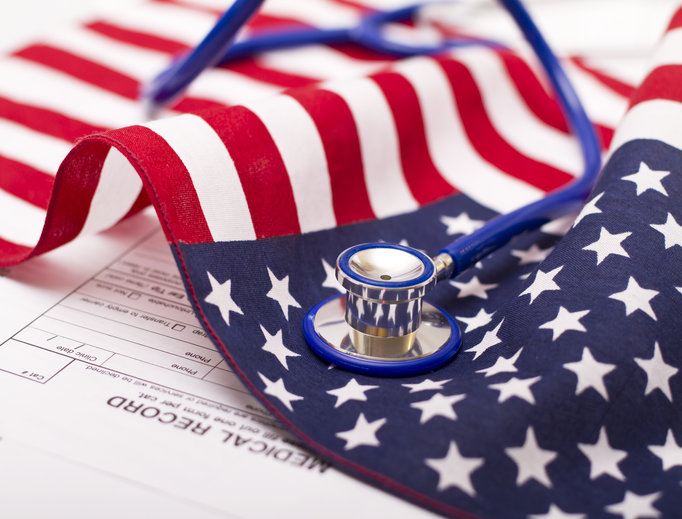Draft of HHS Rule Pleases Religious-Liberty Advocates
Trump administration mum on memo leaked to press May 23.

WASHINGTON — A leaked draft of a federal rule that would protect religious nonprofits from the controversial federal contraception mandate has won the support of religious-liberty advocates, who say that it is sorely needed.
“What the rule ultimately says, is that, given how widely available these products already are, there is simply no need for the government to force unwilling religious groups who serve the poor to provide them or to pay massive fines that would shut down these types of ministries,” said Mark Rienzi, senior counsel at the Becket Fund for Religious Liberty, a public interest group that represents the Little Sisters of the Poor, the Eternal Word Television Network (EWTN), the Register’s parent company, and other Catholic and Christian nonprofits that have filed legal challenges to the federal contraception mandate.
“As I understand it, this rule shows the United States government finally acknowledging that people can get contraceptives without forcing nuns to provide them,” he said.
Rienzi spoke to reporters in a May 31 conference call about a 125-page draft memo, which was leaked to the Vox news outlet and posted on its website.
Archbishop William Lori of Baltimore, the chairman of the U.S. Bishops' Ad Hoc Committee for Religious Liberty, said, "While they have yet to be formally issued and will require close study upon publication, the leaked regulations provide encouraging news." He added, "If issued, these regulations would ... lift the government-imposed burden on our ministries 'to violate their own teachings within their very own institutions.'"
At press time, the Trump administration had not confirmed whether the document, which directs the Department of Health and Human Services to dramatically broaden exemptions for employers who objected to the mandate on moral or religious grounds, had been approved or was still under review by federal agencies.
The rule would “provide exemptions for entities and individuals with both moral and religious objections to contraceptives,” according to draft language.
It would add to, rather than replace, the latest iteration of the HHS mandate approved by the Obama administration, as it faced ongoing litigation from religious opponents of the regulation.
Announced in late 2011, the mandate required employers’ health plans to include coverage of sterilization and contraception, including some drugs that can cause abortion.
The U.S. bishops immediately opposed the federal rule as an unprecedented attack on the religious liberty of Catholic agencies and family-owned businesses that oppose these services on religious and moral grounds.
At issue was the mandate’s unusually narrow religious exemption that only protected dioceses and parishes, but not social agencies, hospitals or universities. More than 300 plaintiffs filed lawsuits.
The Obama administration facilitated a series of accommodations for religious nonprofits, but the Little Sisters of the Poor objected that the rule still required their complicity in the provision of services that violated their religious and moral standards. Refusal to comply with the rule would result in potentially crippling fines.
President Trump had pledged to address the Little Sisters’ objections to the mandate, and a May 4 executive order directed three cabinet departments to consider amended rules that would “address conscience-based objections to the preventive-care mandate.”
The draft religious-liberty “interim final rule” posted on Vox would allow any employer to request an exemption based on moral or religious objections.
“Expanding the exemption removes religious and moral obstacles that entities and certain individuals may face who otherwise wish to participate in the health care market,” read the May 23 draft posted at Vox.com.
Employers seeking an exemption must clearly state in their health plan documents that they do not cover contraception or related products.
The rule would also allow health insurers to decline to cover contraception and allow individuals to object to participation in a health plan that covers birth control.
The Becket Fund’s Rienzi could not confirm whether the draft language posted on the Vox website was still under review by the Trump administration. But he said the Little Sisters’ legal battle would continue. Protecting religious liberty with a new federal rule would be “a very good thing,” said Rienzi, but the religious order will continue to seek a court order to bar the government from imposing similar requirements in the future.
The Little Sisters have always wanted a court to definitively state that “the government cannot force them to provide abortion-inducing drugs, sterilization and contraception,” said Rienzi.
“The alternative would be a world where the Little Sisters of the Poor and other groups, every four to eight years, have to be staring at the Federal Register, waiting and worrying to see whether the government is going to try to re-impose this.”
USCCB info and link added at 5:40pm Eastern time.

















